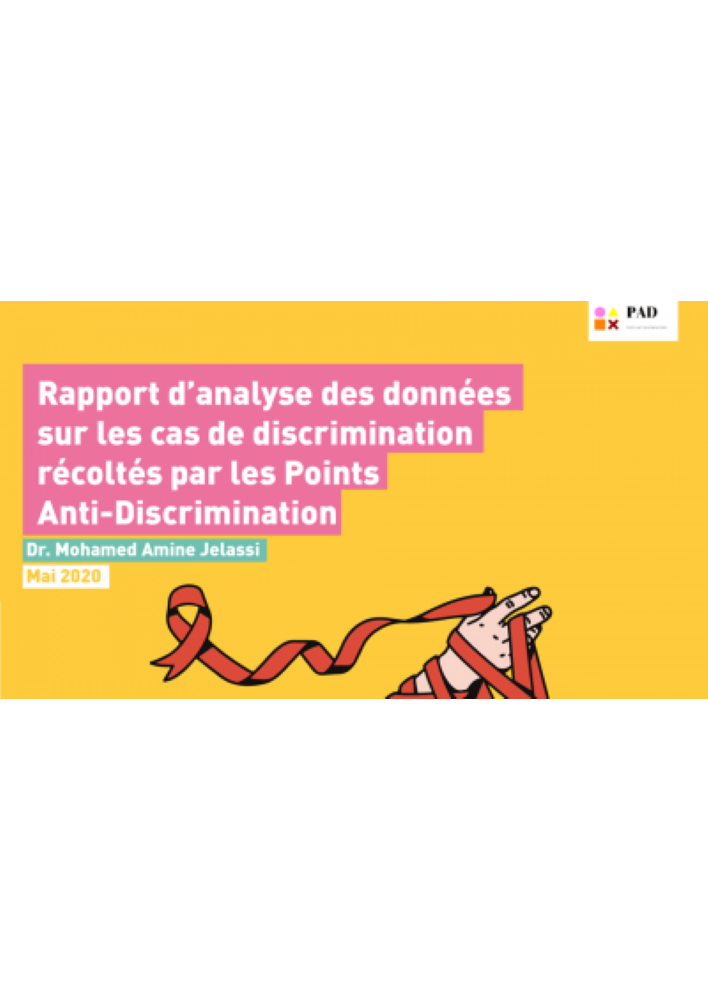
Analysis Report of the cases of discrimination collected by the Anti-Discrimination Points
This resource was produced by MRG’s partner(s) with MRG. It remains the property of the organization(s) in question and does not necessarily reflect the views of MRG.
The purpose of this Analysis Report of the cases of discrimination collected by the Anti-Discrimination Points is to analyse the issue of discrimination in Tunisia using as a database the cases of discrimination collected within the framework of the programme ‘For the Consolidation of the Capacity of Tunisian Civil Society in the Fight Against all Forms of Discrimination‘.
This project focuses in particular on two types of discrimination: racial discrimination and discrimination based on sexual orientation and gender identity, but also the intersection between these two forms of discrimination.
The cases of discrimination studied were collected between January and December 2019 by the network of Anti-Discrimination Points (PAD) in 9 of the 24 governorates existing in Tunisia: Tunis, L’Ariana, Bizerte, Sousse, Monastir, Sfax, Gabes, Medenine and Tataouine.In 2019 the PAD network was formed of 8 Tunisian civil society organisations that received the victims of discrimination: Association for the Promotion of the Right to Difference (ADD), Tunisian Association for Positive Prevention (ATP +), By Lhwem, Chouf , Damj, Danseurs Citoyens Sud, Mawjoudin, Mnemty.A total of 309 cases of discrimination were identified, including 227 cases based on sexual orientation and gender identity and expression; 76 cases on the basis of colour, including 66 also on the basis of national origin (being the victims sub-Saharan migrants); 4 cases on the basis of religion and 2 on the basis of language (towards Amazighs).
The aim of this study is to analyse cases of discrimination from a quantitative and qualitative point of view (where the discrimination took place? What type of right was violated and why?). The cases analysed are not exhaustive and certainly do not represent all cases of discrimination that may have occurred in Tunisia during the period studied. This study is limited in its analysis by the capacities of the project and of the associations involved and thereby strives to report locally on a phenomenon that exists on a global level.
The study also provides an analysis of the existing legal framework in Tunisia and at the international level around these two types of discrimination, as well as recommendations on how to improve the framework for combating all forms of discrimination.
This content was published in the context of the programme ‘Tackling Multiple Forms of Discrimination in Tunisia’ (PAD). Learn more >